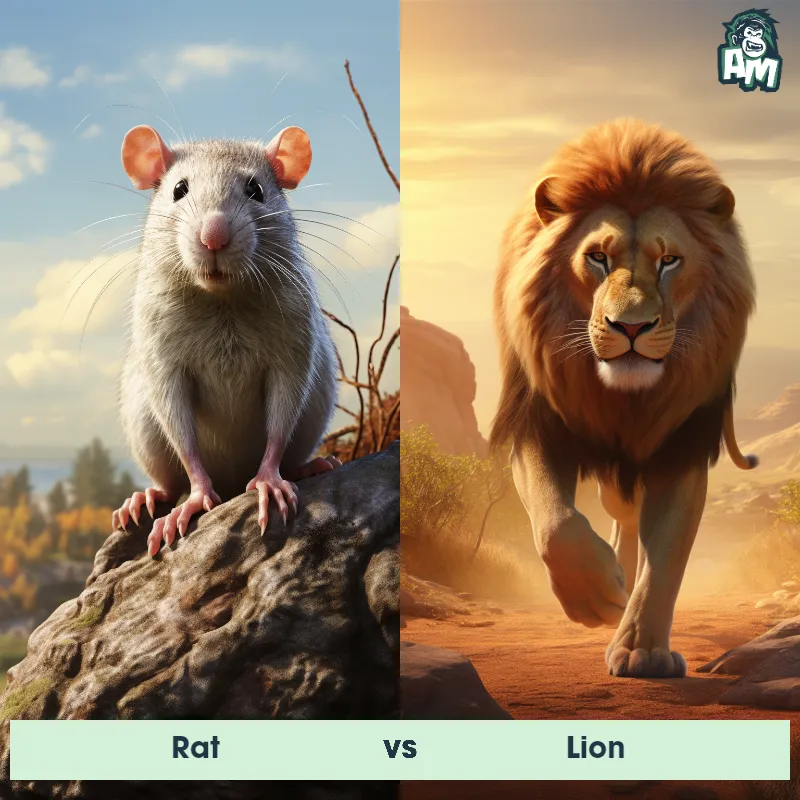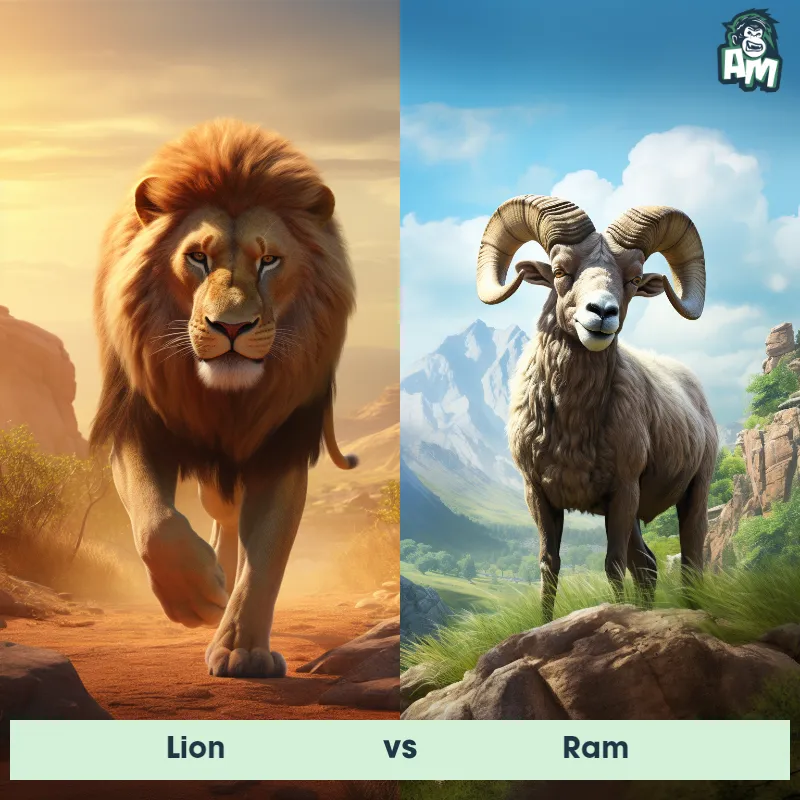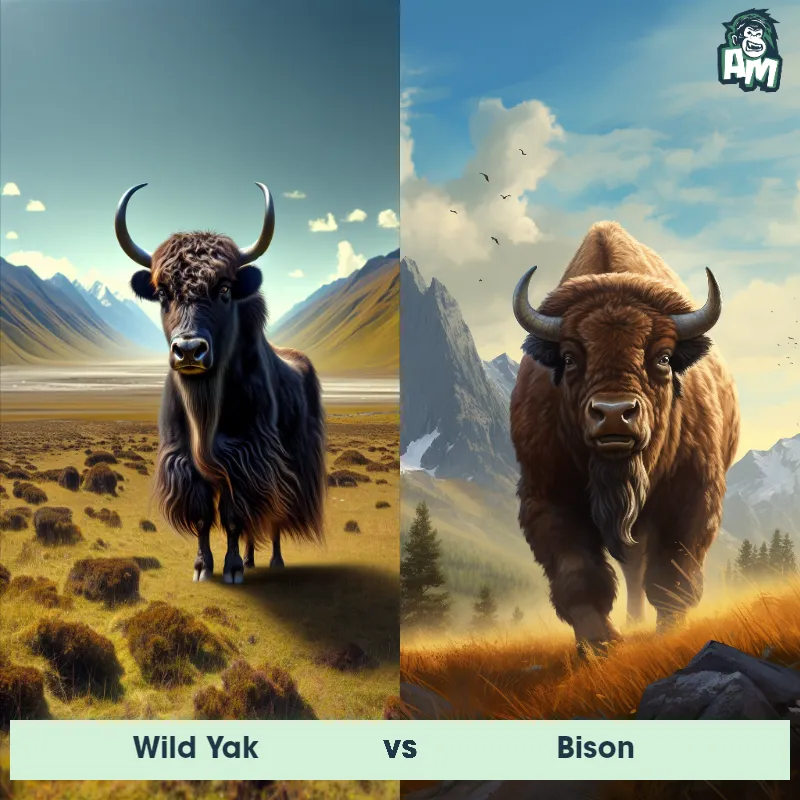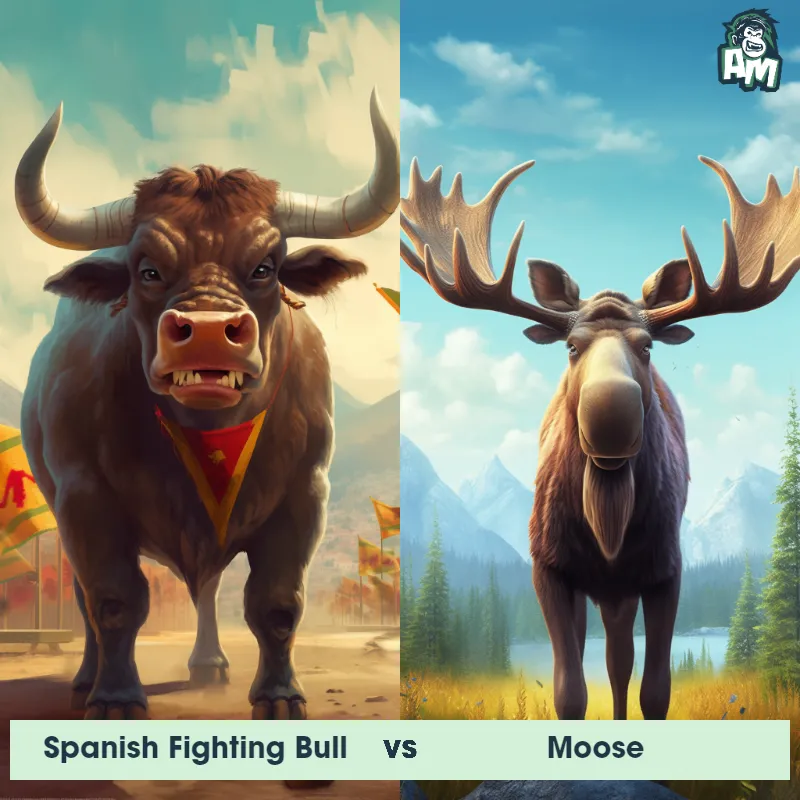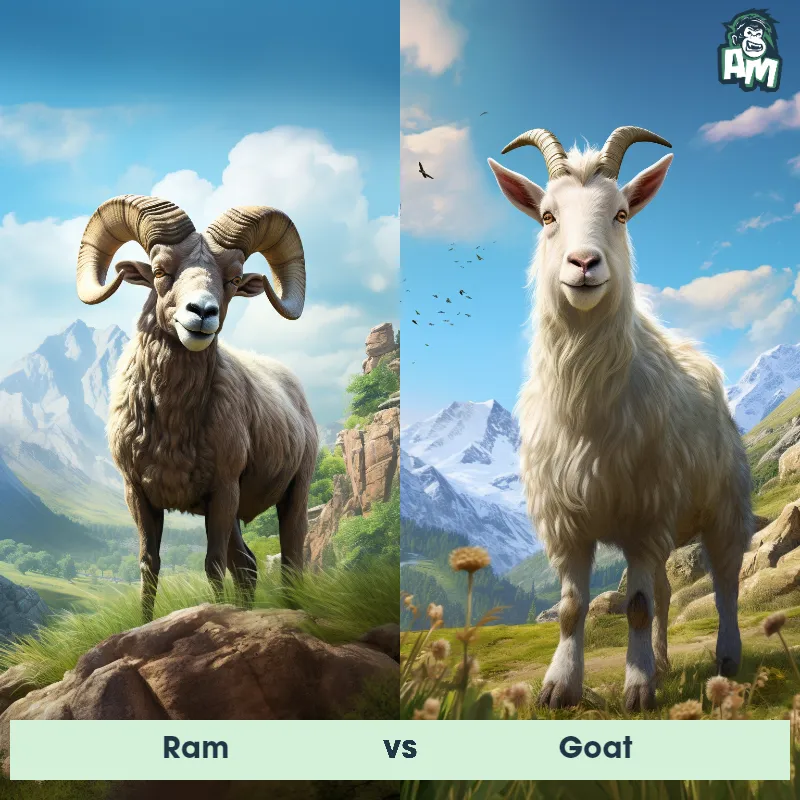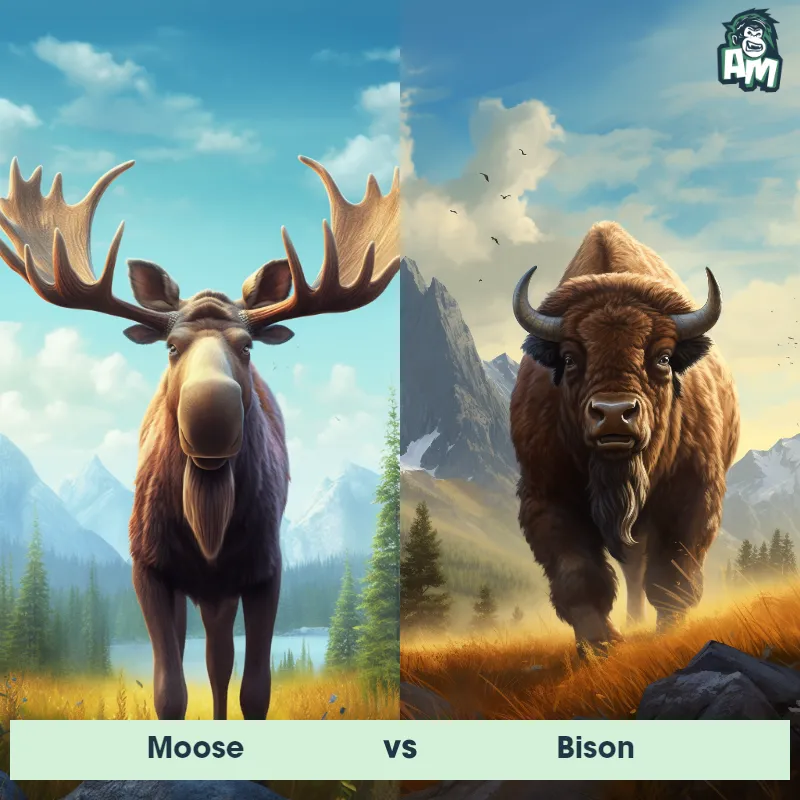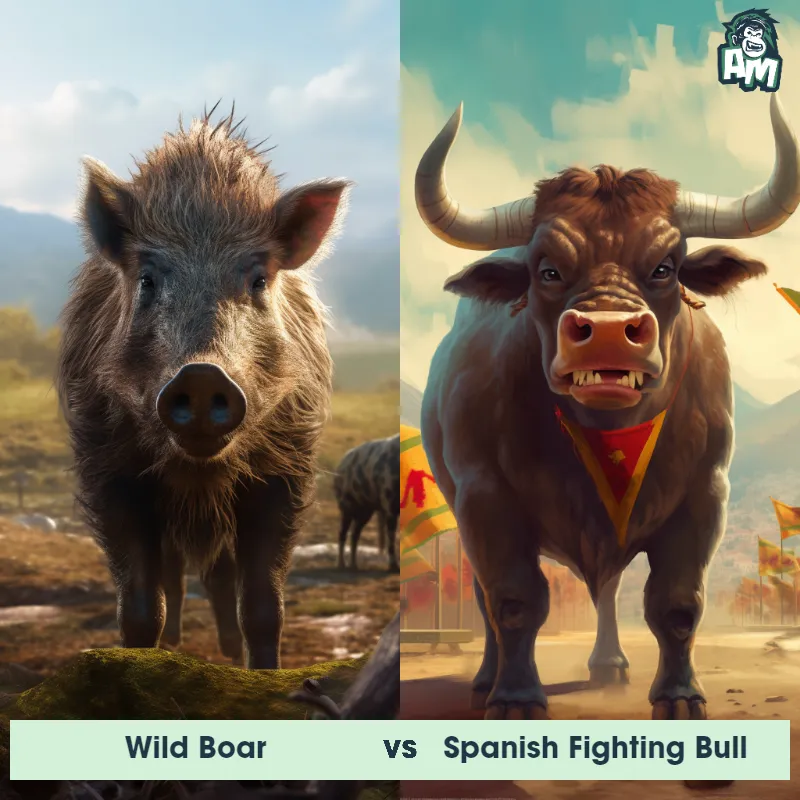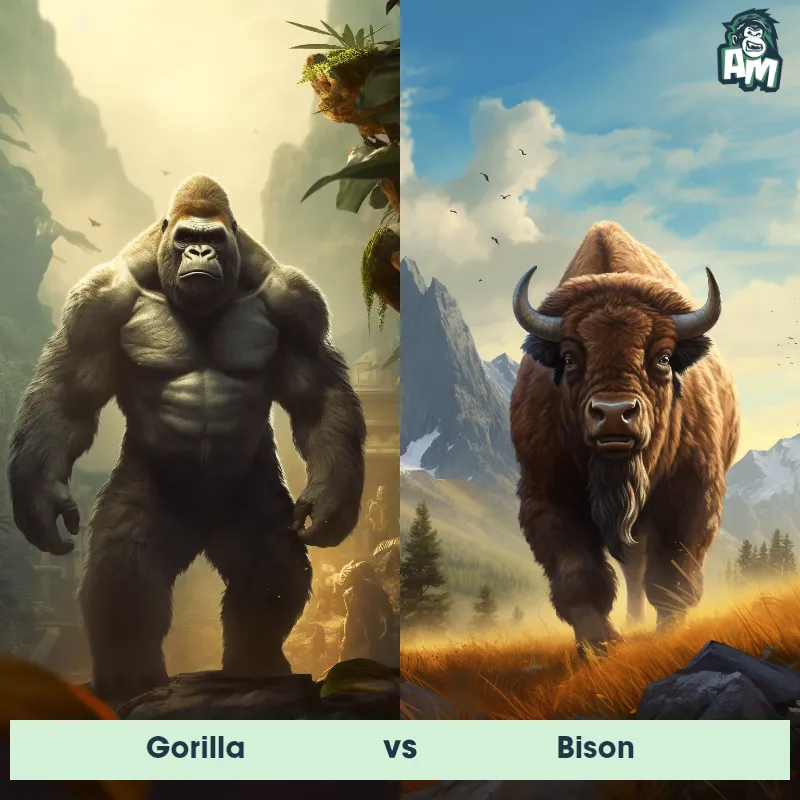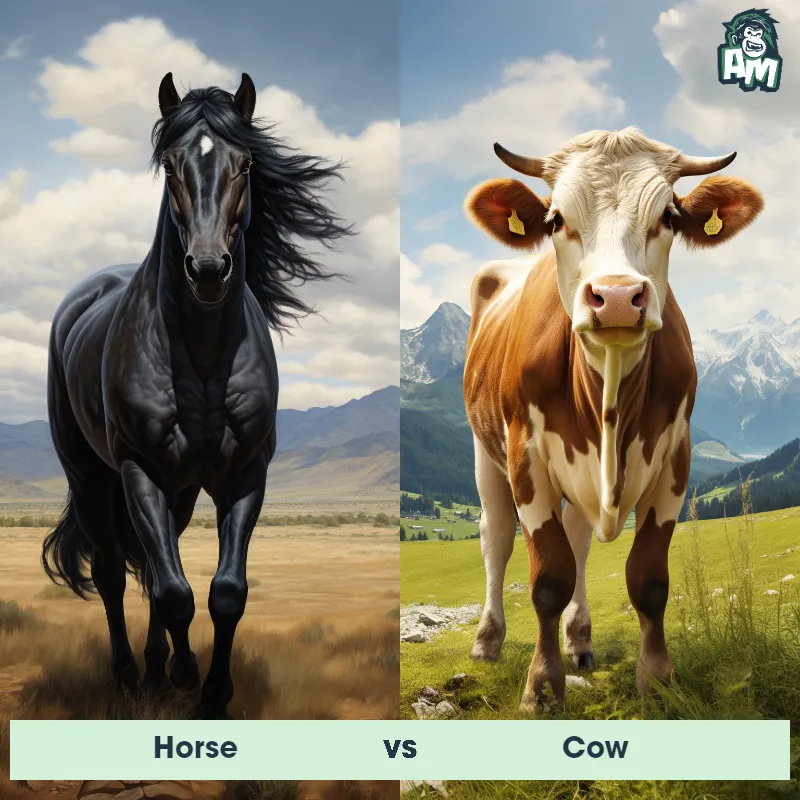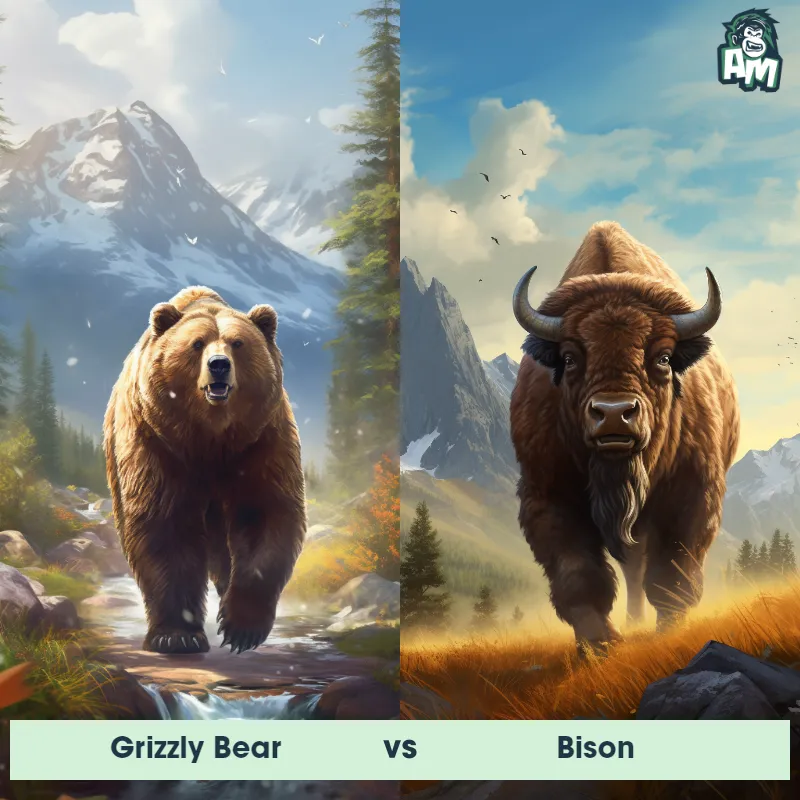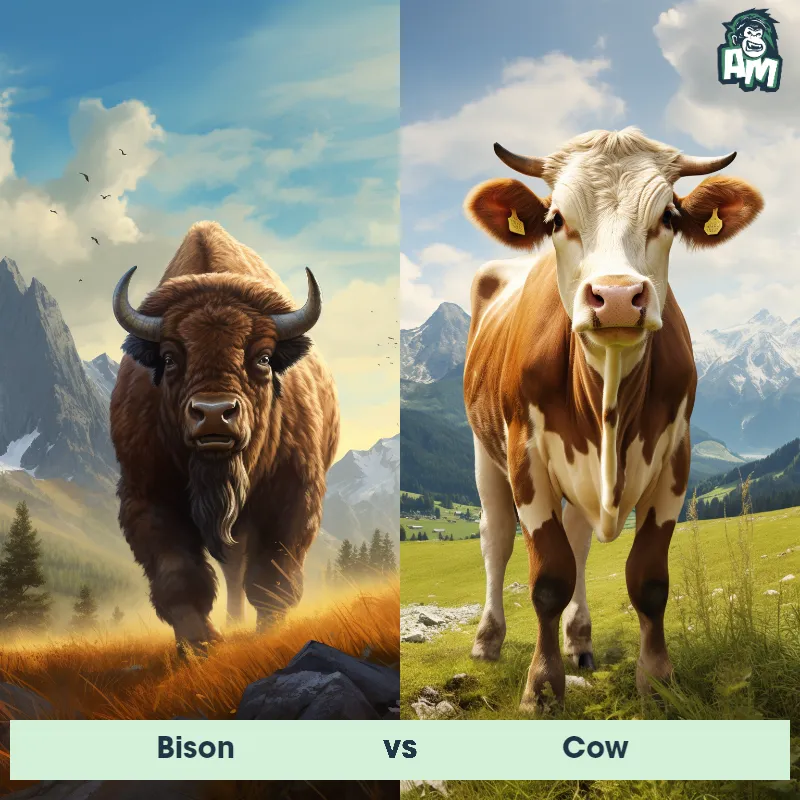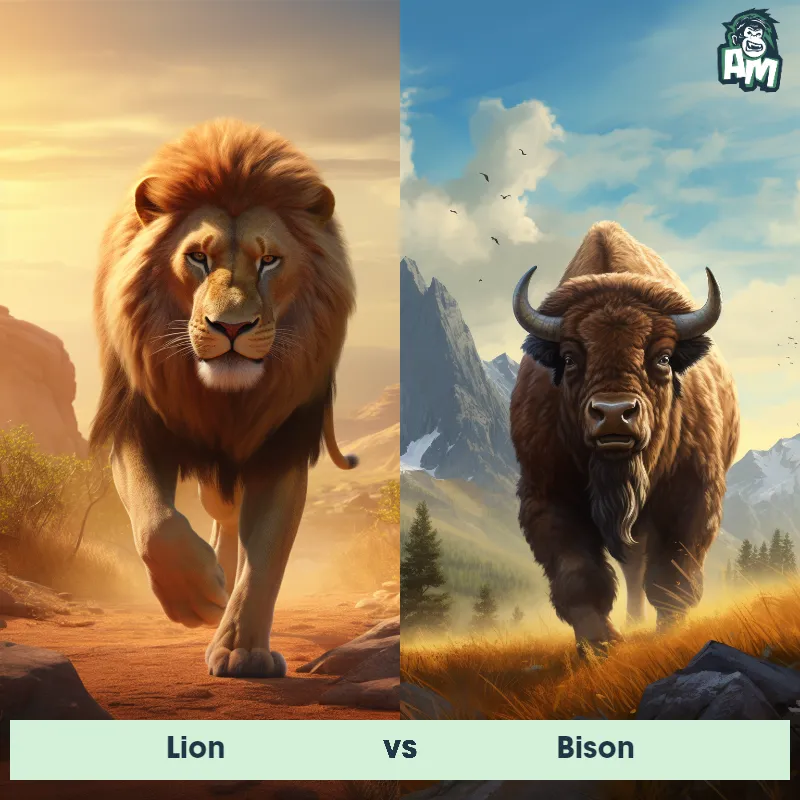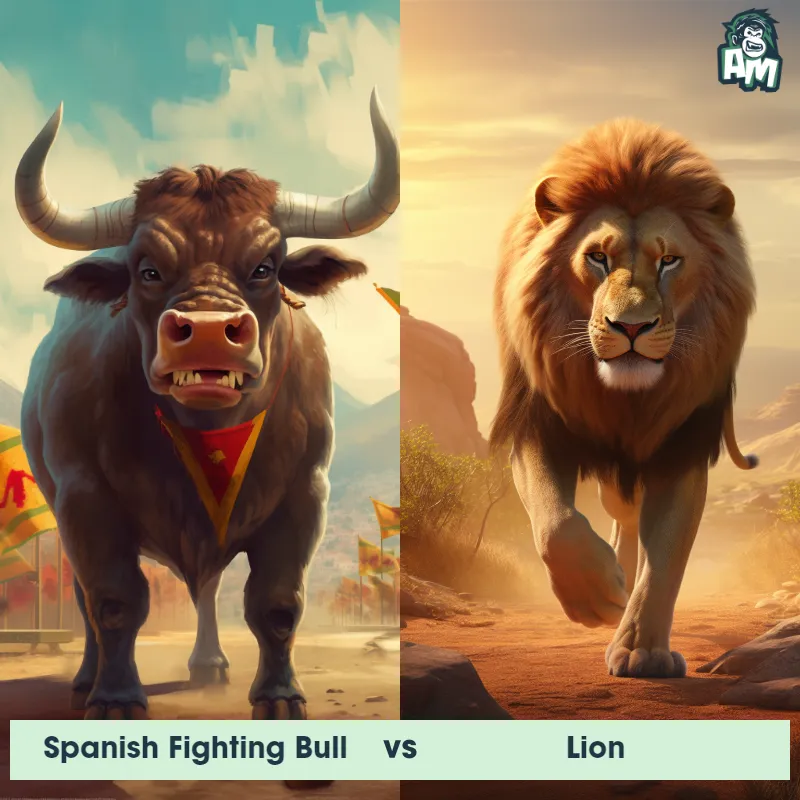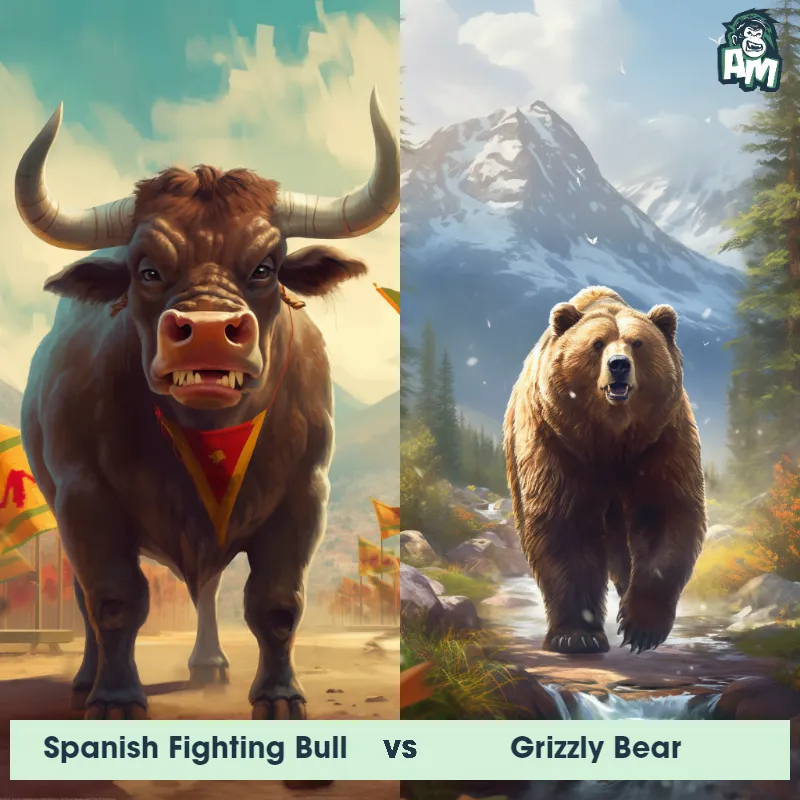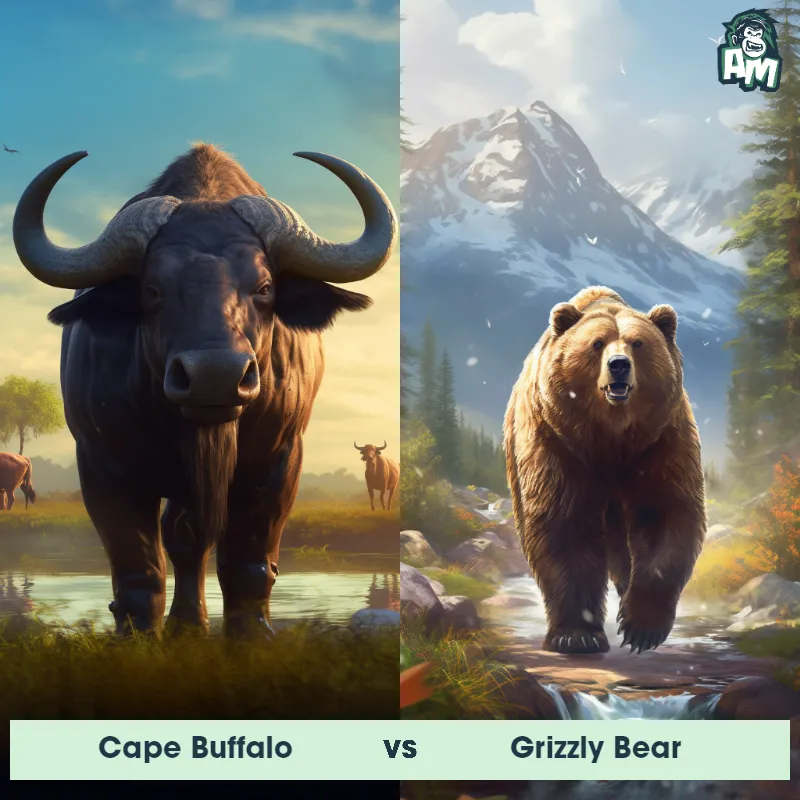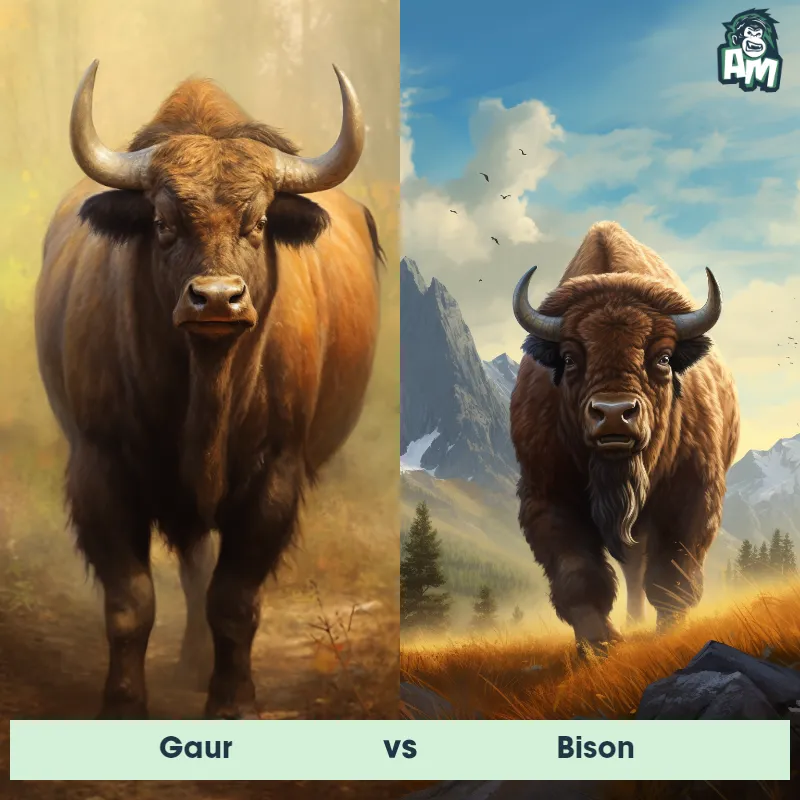Bison vs RamSee Who Wins

Ladies and gentlemen, welcome to this thrilling animal matchup! Today, we have an epic showdown between two mighty competitors. In the red corner, weighing in at a massive ton, we have the Bison. And in the blue corner, standing tall with tremendous horns, we have the Ram. This is bound to be a spectacle of strength and strategy. Without further ado, let the battle begin!
Contender 1: Bison
The bison, also known as the American buffalo, is a massive, hump-shouldered beast known for its iconic place in the history and folklore of the American West. They are covered in a shaggy, dark brown winter coat, and have a lighter-weight, lighter brown summer coat. With their massive size, adult males can weigh up to 2,000 pounds, and both males and females have short, curved horns, which they use in fighting for status within the herd and for defense.
Fun Fact: Despite their massive size and seemingly lumbering movements, bison are remarkably agile and quick, capable of running up to 35 miles per hour and jumping high fences.
Contender 2: Ram
The Ram, a male sheep, is characterized by its robust body, thick fleece, and most notably, its large, curling horns which can weigh up to 30 pounds in some species. With a sturdy build and size varying by breed, rams are easily distinguishable from ewes (female sheep). They inhabit a variety of environments around the world, from mountainous terrains to flat plains, demonstrating remarkable adaptability.
Fun Fact: Rams use their iconic horns for fighting, where they charge and butt heads with other males to establish dominance or win a mate during the breeding season, known as rutting.
Matchup Stats
| Bison | Ram | |
|---|---|---|
| Size | 5-6.5 feet tall at the shoulder (1.5-2 meters) | 2.5-3 feet tall at the shoulder (0.75-0.9 meters) |
| Weight | Up to 2,000 pounds (907 kilograms) | 150-300 pounds (68-136 kilograms) |
| Speed | 37mph (60km/h) | 40mph (65km/h) |
| Key Strength | Powerful size, speed, and horns | Large, curling horns used for head-butting |
| Biggest Weakness | Limited agility due to size | Limited agility due to heavy horns and robust body |
Current Votes
Bison vs Ram
See Who Wins
View More Matches
Looking For More?
Similar Matches
Scientific Stats
| Bison | Ram | |
|---|---|---|
| Scientific Name | Bison bison | Ovis aries |
| Family | Bovidae | Bovidae |
| Habitat | Grasslands, prairies, and forests | Mountainous terrains, flat plains |
| Geography | North America | Worldwide |
| Diet | Herbivore, primarily grasses and sedges | Herbivore, primarily grasses |
| Lifespan | 12 years - 20 years | 10 years - 15 years |
Key Differences between Bison and Ram
- Body shape: Bison have a heavy and bulky body, especially in the front, with a low-hanging dewlap under the throat, while the Ram has a leaner and more agile body shape.
- Habitat: The Bison is typically found in grasslands and open plains, preferring areas with short grasses for grazing, whereas Rams are known to inhabit rugged mountainous terrain, often scaling steep cliffs and rocky slopes.
- Horns: The Bison has a pair of large, curved horns that sweep backward and can reach up to 2 feet in length, while the Ram boasts a pair of massive, spirally curved horns that can grow up to 6 feet long in males.
- Facial features: The Bison possesses a massive, square-shaped head with a prominent hump at the shoulders, whereas the Ram has a more streamlined head with a narrower snout and lacks a noticeable hump.
- Coloration: The Bison has a shaggy coat of rough, dark brown or black fur, often appearing lighter near the neck and shoulders, whereas the Ram has a shorter coat with coloration varying from light brown to gray, with a distinctive white rump.
- Size: The Bison is generally larger than the Ram, with adult males weighing between 900-2,200 pounds and standing 6-6.5 feet tall at the shoulder, while Rams weigh around 120-350 pounds and stand 2.5-3.5 feet tall at the shoulder.




